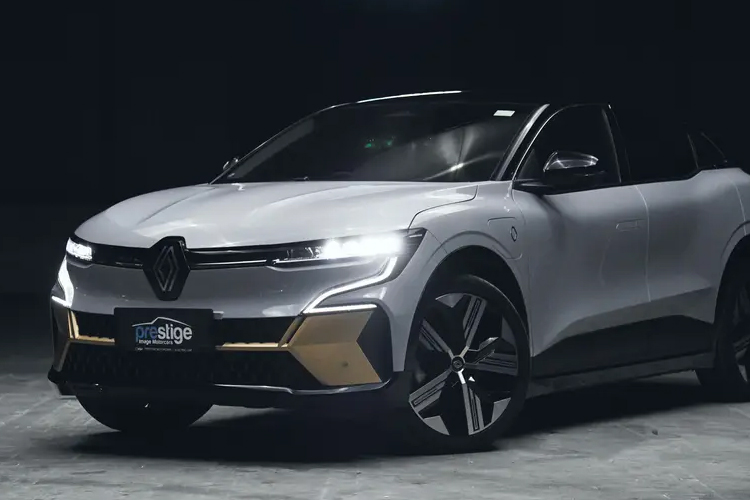With increasing concerns over climate change and air pollution, the automotive industry is undergoing a major transformation.
The future of cars is undoubtedly electric vehicles (EVs), which are becoming more popular and affordable. In this article, we will delve into the history, benefits, and future of electric vehicles, and why they are the key to a more sustainable future.
Electric vehicles, also known as EVs, are vehicles that are powered by an electric motor instead of an internal combustion engine.
They use energy stored in rechargeable batteries instead of fuel to power the vehicle.
The history of electric vehicles dates back to the 1830s, but it was not until the late 19th century that they became more common.
However, with the introduction of the internal combustion engine, gasoline-powered cars became more popular and electric vehicles were largely phased out.
It was not until the 21st century that electric vehicles began to make a comeback due to increasing concerns over air pollution and the environmental impact of fossil fuels.
Also Read: Mahindra Records All-Time High Sales in March 2023
How do electric vehicles work?
Electric vehicles work by using an electric motor to convert electrical energy stored in rechargeable batteries into mechanical energy that propels the car. The batteries can be charged using a variety of methods, including plug-in charging stations, regenerative braking, and wireless charging.
Benefits of electric vehicles
Environmental benefits
One of the biggest benefits of electric vehicles is that they produce zero emissions while driving. This means that they do not contribute to air pollution and can help to reduce the overall carbon footprint of the transportation sector.
Financial benefits
Electric vehicles can also provide financial benefits to owners. They are typically cheaper to maintain and operate than gasoline-powered vehicles due to the lower cost of electricity and fewer moving parts. Additionally, they may be eligible for tax credits and other incentives.
Convenience benefits
Electric vehicles also offer convenience benefits. They are typically quieter and smoother to drive than gasoline-powered vehicles and require less maintenance. Additionally, many electric vehicles can be charged at home, eliminating the need to visit a gas station.
Types of electric vehicles
There are three main types of electric vehicles: battery electric vehicles (BEVs), plug-in hybrid electric vehicles (PHEVs), and hybrid electric vehicles (HEVs).
Battery electric vehicles (BEVs)
BEVs are powered entirely by electric motors and use only electricity as a fuel source. They typically have a range of 100-300 miles per charge, depending on the battery capacity.
Plug-in hybrid electric vehicles (PHEVs)
PHEVs have both an electric motor and a gasoline engine, which can be used together or separately. They have a shorter electric-only range of around 20-50 miles but can switch to the gasoline engine for longer trips.
Hybrid electric vehicles (HEVs)
HEVs also have both an electric motor and a gasoline engine, but the electric motor is used to assist the gasoline.
Charging electric vehicles
Charging an electric vehicle is easy and convenient. There are three main types of charging: Level 1, Level 2, and Level 3 (DC fast charging). Level 1 charging can be done using a standard household outlet and takes several hours to fully charge the battery. Level 2 charging requires a charging station and takes 4-8 hours to fully charge the battery. Level 3 (DC fast charging) can charge the battery up to 80% in 30 minutes or less.
Also Read: Hyundai Verna 2023: A Revolutionary Design Inspired by Spaceship
Challenges of electric vehicles
Despite their benefits, there are still some challenges to widespread adoption of electric vehicles.
Range anxiety
Range anxiety is a common concern among EV owners, which is the fear of running out of charge and being stranded. However, with advancements in battery technology, the range of electric vehicles is increasing and range anxiety is becoming less of an issue.
Charging infrastructure
Another challenge is the lack of charging infrastructure, particularly in rural areas. However, governments and private companies are investing in building more charging stations to address this issue.
Battery disposal
Battery disposal is also a concern, as the batteries in electric vehicles contain toxic materials that can harm the environment. However, many manufacturers are working on recycling and repurposing used batteries to reduce waste.
Future of electric vehicles
The future of electric vehicles is bright, with many advancements in technology and infrastructure. Some of the key developments to watch for include:
Advancements in battery technology
Research and development in battery technology is ongoing, with new materials and designs being developed to increase the range and durability of electric vehicle batteries.
Autonomous driving
Electric vehicles are also being developed with autonomous driving capabilities, which will make them safer and more efficient.
Electric vehicle adoption
Finally, as more consumers become aware of the benefits of electric vehicles and governments continue to incentivize their adoption, we can expect to see a significant increase in the number of electric vehicles on the road.
Electric vehicles are the future of the automotive industry, with many benefits for the environment, consumers, and the economy.
While there are still some challenges to overcome, the advancements in technology and infrastructure are promising, and we can expect to see more electric vehicles on the road in the coming years.
